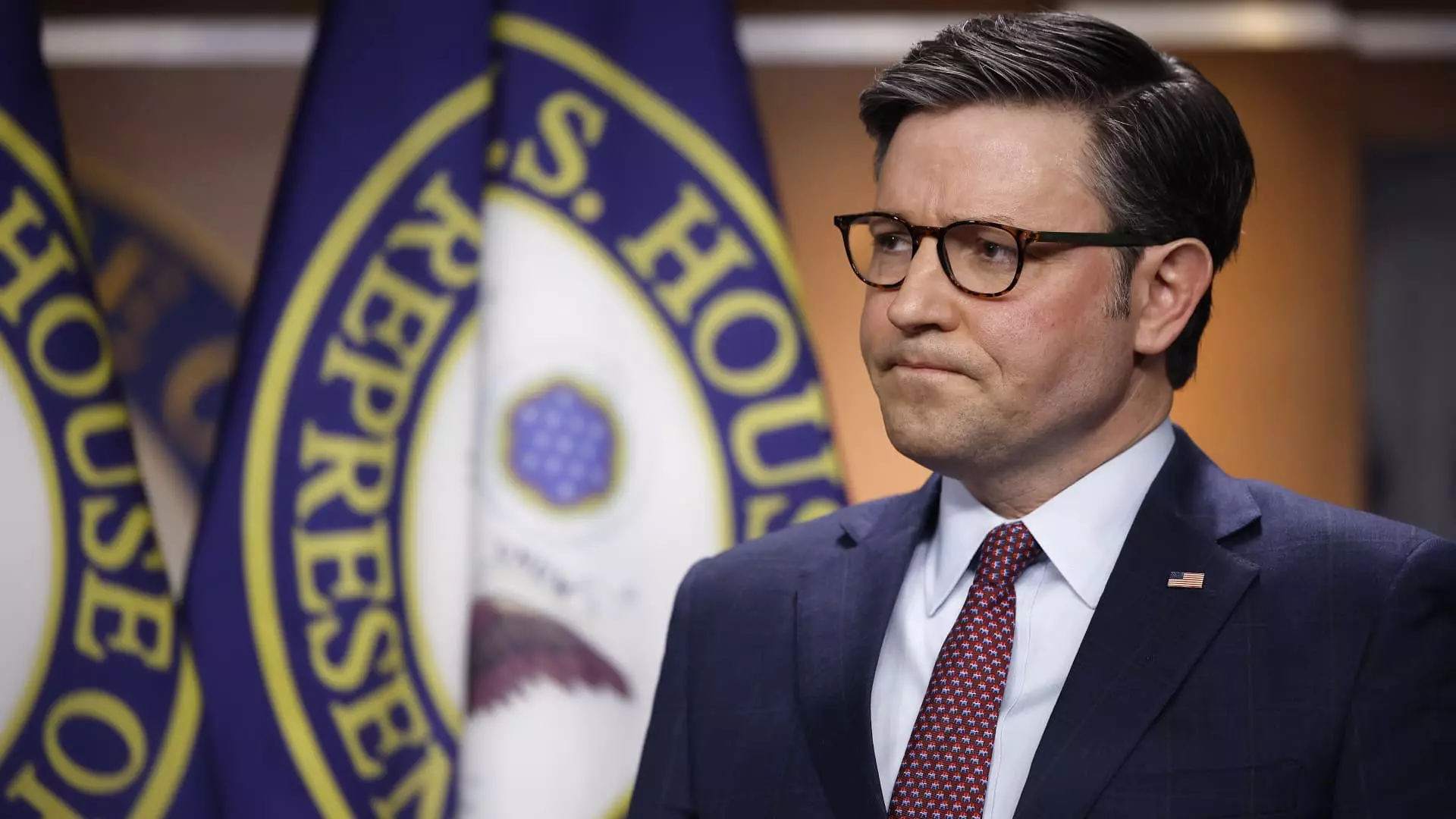In a move that could further complicate the already deadlocked negotiations over emergency aid proposed by President Joe Biden in October, House Speaker Mike Johnson, R-La., has announced an Israel-only funding package that will be voted on next week. This announcement comes as a challenge to the long-awaited Senate package, which is expected to be released this weekend.
The House bill includes $17.6 billion for Israel’s military and U.S. military forces in the region, particularly in light of the ongoing war with Hamas in Gaza. If approved, this funding would supplement the $14.3 billion that the House had previously passed for Israel after the attack by Hamas on October 7. Unlike Biden’s original proposal, the House bill separates aid to Israel from Ukraine, Taiwan, and the U.S. southern border.
The House, with its Republican majority, has expressed its intention to take a tough stance on the Senate’s proposal. Speaker Johnson is under pressure to appease Republican hardliners who expect him to deliver on their ultraconservative wish list, which includes limiting spending and maximizing border security. By introducing an Israel-only funding package, the House is putting forward its own priorities.
Expected to be released this weekend, the Senate bill is anticipated to include broader foreign aid beyond just Israel and address border security funding. However, the House has criticized the Senate’s approach, arguing that by excluding them from the negotiations, the Senate has eliminated the possibility of swift consideration of any legislation. Speaker Johnson emphasized this point in a letter addressed to his “Friends,” stating that the House would pass a clean, standalone Israel supplemental package the following week.
The passage of Biden’s October aid package has been delayed due to disagreements over various issues. Lawmakers, both Democrats, and Republicans, have spent months negotiating the proposal, resulting in a near government shutdown and encroachment on lawmakers’ holiday break. Disputes over how to address the U.S. border crisis and the continuation of funding Ukraine’s defense against Russia have caused significant roadblocks.
Democrats believe that funding for Ukraine is crucial to prevent the rise of authoritarian Russian leader Vladimir Putin and his threat to global democracy. On the other hand, Republicans argue for reining in Ukraine aid, asserting that the ongoing two-year war has led to overspending by the U.S. government without a clear end in sight.
Another major point of contention has been the border crisis, exacerbated by record numbers of migrants crossing into the U.S. over the past few months. Some cities have been overwhelmed, with mayors stating that they lack the resources or infrastructure to handle the influx. Republicans have used this crisis to push for their border security wish list, including policies that the Democrat-majority Senate is unlikely to pass.
These disagreements and clashes have resulted in a deadlock on the emergency aid package. While both Democrat and Republican lawmakers claimed to be working towards a middle ground, recent political complications have hindered progress. Senate Minority Leader Mitch McConnell reportedly disclosed in closed-door meetings that former President Donald Trump sought to sabotage the deal to deny Biden a campaign victory during an election year. Trump has consistently used the border crisis as a talking point against Biden in his potential bid for re-election in 2024.
The announcement of an Israel-only funding package by House Speaker Mike Johnson adds another layer of complexity to the already stalled negotiations over emergency aid. With the House and Senate proposing different approaches, it remains to be seen whether they can find common ground and pass a comprehensive aid package that addresses the diverse needs of Israel, Ukraine, the U.S. southern border, and other critical areas. The future of this emergency aid package hangs in the balance as lawmakers navigate the challenges of both the domestic and international political landscapes.

Leave a Reply